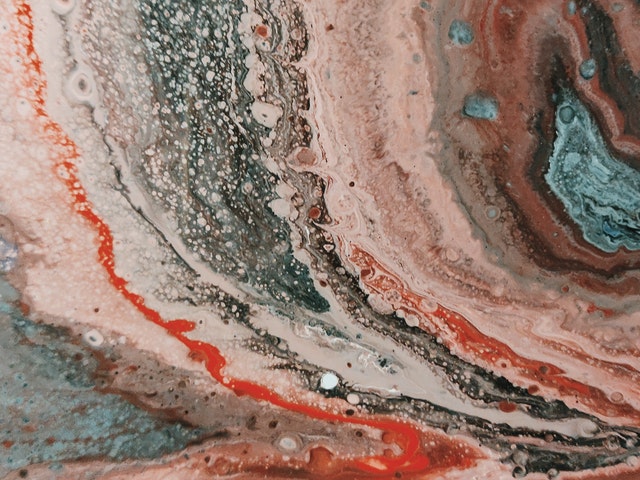SINCE it is fundamental for a country, just as for a person, to have a pay, and since.
articles of extravagance are more effectively burdened than are those of need, the traffic in diamonds and their
impersonations has often been made a wellspring of income to our administration. Generally the per
penny. charged as duty has been relatively low, particularly upon truly significant pearls, for example,
precious stones and pearls, for the explanation that too high a tax would will in general entice deceitful
vendors to pirate such products into the country without pronouncing them. At the point when the edge of
distinction between the qualities, with and without the duty, is kept little the allurement is however
slight, when the risk of[295] discovery and the exceptional idea of the standard discipline are
considered. Harsh stones have as often as possible been permitted to enter the country obligation free
since they were viewed as alluring crude materials which would bear the cost of work to home
industry.
The levy laws of October 3, 1913, made, notwithstanding, some far reaching developments in the strategy of our
government toward valuable stones and as those laws are as yet in power (April 4, 1917) this exercise
will endeavor to present obviously the specific conditions under the current law.
Maybe the passage of first significance to the exchange is No. 357 which peruses as follows.
"357. Jewels and other valuable stones, unpleasant or whole, and not progressed in condition or
esteem from their regular state by separating, parting, cutting, or other interaction, regardless of whether in their
regular structure or broken, and bort; any of the previous not set, and precious stone residue, 10 for every centum
promotion valorem; pearls and parts thereof, penetrated or undrilled, yet not set or[296] hung; precious stones,
coral, rubies, appearances, and other valuable stones and semi-valuable stones, cut however not set, and
reasonable for use in the assembling of gems, 20 for each centum advertisement valorem; impersonation valuable
stones, including pearls and parts thereof, for use in the production of gems, doublets,
fake, or alleged engineered or remade, pearls and parts thereof, rubies, or other
valuable stones, 20 for each centum advertisement valorem."
It will be seen that the main changes over the past law are first that which forces a 10%
obligation on harsh valuable stones, which were once in the past liberated from obligation, and second the development in the
obligation on cut jewels and other cut stones from the previous 10% to the present 20%.
This increment in the levy was viewed as rash by numerous traditionalist merchants, as the
impulse to cheat the public authority is made a lot more prominent than previously. The change was even
dreaded by genuine sellers who were[297] apprehensive that they couldn't effectively rival
unscrupulous merchants who may carry pearls into the country. Despite a somewhat decided
resistance the change was made and our most delegate sellers have been making the awesome
of the circumstance and have been doing all that they could to help forestall carrying or if nothing else
diminish it to a base. Through their insight into the developments of jewel stocks and of
costs they can recognize any unduly enormous stock or any ridiculous lowness of cost and
consequently to help the public authority specialists by coordinating examination towards any seller who appears to
be getting a charge out of invulnerability from the tax.
The topic of the situation with Japanese refined pearls has been settled as follows. Section 357
(cited above) is governed to cover them and they are consequently dependent upon a 20% advertisement valorem charge.
Carbonadoes—diggers' precious stones—are liberated from obligation, under passage 474. Unrefined minerals
are[298] likewise liberated from obligation, passage 549. Section 607 proclaims "Examples of characteristic history
what's more, mineralogy" are free.
On the off chance that the proprietor isn't set up to pay the assessment on imported product the public authority holds
the products for a time of three years forthcoming such installments.
In the event that a shipper shows that imported product was bought at more than real market
esteem, he may deduct the distinction at season of section and pay obligation just on the discount unfamiliar
market esteem, under Section III., passage 1.
Then again, if the analyst discover product to be underestimated on the receipt, such
stock is dependent upon extra correctional obligations, yet in the event of conflict between the
merchant and the analyst concerning the genuine market esteem, allure might be taken to the Customs
Court.
Since the Philippine Islands are assets of the United States, pearls from those islands[299]
might be conceded liberated from obligation when current realities of their starting point are affirmed to.
On account of valuable stones which had their starting point in the United States, yet which were
traded and saved for a period abroad it has been decided that such stones might be brought into the
US liberated from obligation.
At the point when valuable or impersonation valuable stones are brought into the United States and in this manner
mounted into adornments which is then traded, the obligation which was paid upon passage might be
discounted less an allowance of 1%.
The creator wishes to stretch out his gratitude to Examiner W. B. Treadwell of New York, for his
help concerning the subject managed in this exercise.

